Archive
19 August 2018
ICCE conference and Miami Beach SLR adaptations
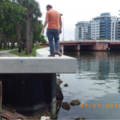
21 July 2018
Interview Anne Ton: Monitoring oevers Houtribdijk - met een waadpak naar de bodem
PhD-student Anne Ton doet onderzoek op de afdeling waterbouwkunde naar de efficiëntie van de versterking van de Houtribdijk, de 25 km lange dijk tussen Lelystad en Enkhuizen die met zand en steen verstevigd wordt. ‘Het gebruik van zandige oevers op een plek als dit is wereldwijd uniek. Ik kan het dus nog helemaal zelf ontdekken.’ Zei ze in een interview met Rijkswaterstaat.
04 July 2018
Extreme sea levels predicted to increase along global coastlines

Future global warming will lead to an increase in ‘extreme sea levels’, with consequent flood risks to coastal infrastructure and human populations. An international research team from Italy, Greece, the Netherlands (TU Delft / Deltares) and the UK published this new research in Nature Communications.
04 July 2018
Willows are an asset in natural flood defences
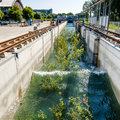
A lot of claims are made worldwide about the role nature can play in combating floods, typhoons and tsunamis. However, no sound research has ever been conducted into the effect of nature on extreme conditions of this kind. How well do trees break the waves?
12 June 2018
In-depth analysis of safety for swimmers around the Sand Engine
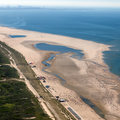
Pumping huge volumes of sand onto the coastline has effects on currents, waves and swim safety. Max Radermacher has compiled the first analysis of this problem to allow targeted measures (such as extra coastguards) to be taken where necessary. Radermacher will be awarded a PhD at TU Delft for his work on this subject on Friday 15 June.
10 June 2018
MIT students visit The Netherlands
A group of MIT professors and students visited The Netherlands last February, and were introduced to Dutch flood risk reduction structures and strategies by Tjerk Zitman and Baukje Kothuis during a week of field trips.
07 June 2018
4TU Resilience Engineering Centre officially launched
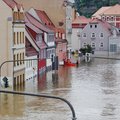
Large power failures or heavy storms demonstrate how vulnerable our infrastructure is. The four technical universities in the Netherlands (Delft University of Technology, Eindhoven University of Technology, University of Twente, and Wageningen University and Research) are joining forces in the field of Resilience Engineering. On 7 June, the plans for the centre have been explained during an international launch event in Rotterdam.
31 May 2018
No increase in losses in Europe from floods in the past 150 years
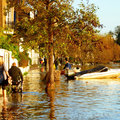
Extreme hydrological events are generally predicted to become more frequent and damaging in Europe due to warming climate. Researchers from TU Delft and Rice University (Houston) have now shown that, correcting for economic and demographic changes, there has been no increase in financial losses and fatalities from floods in the last 150 years. They have reported on their findings in Nature Communications.
27 May 2018
Flood risk workshop in Tirana, Albania

Albania is regularly struck by riverine floods, like on 2nd and 3rd December 2017. A workshop was organised from 26 to 30 April 2018 for students to explore integrated strategies of flood risk reduction in the built-on environment of Tirana (the capital of Albania). The workshop was jointly initiated by TU Delft, Faculty of Architecture and people involved in the Brigaid programme.
08 May 2018
‘Where there's a will, something goes away’
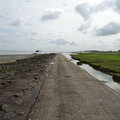
The Netherlands needs to opt for a coastal system that is as adaptive as possible, taking maximum advantage of the coast’s natural resilience and its ability to organise itself. This is according to ecologist, Prof. Peter Herman, who will give his inaugural address at TU Delft on Wednesday, 9 May.